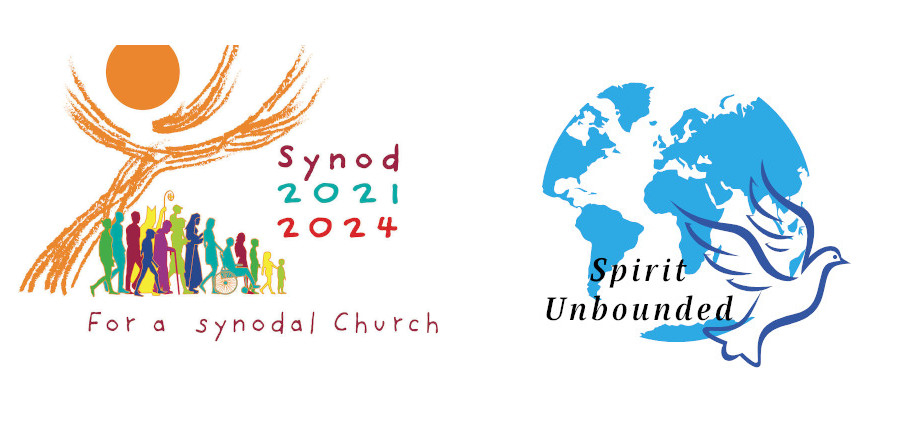Spiritual Ecologies: Synod Report for October 11, 2023
Grace Wrackia, a Synod delegate from Papua New Guinea, spoke about the unique gifts of Melanesian spirituality indigenous to her part of the world at a press briefing earlier today.
Wrackia described this indigenous spirituality as having four main components: community living, an integrated worldview, a “harmonious relationship with the cosmos,” and the practice of religious rituals. She acknowledged that it can be a struggle for indigenous people to maintain their original beliefs due to the pressures of colonialization, globalization, and secularization.
Melanesian spirituality is focused on “building relationships,” she said. She drew a parallel with the current moment in the Catholic Church, saying, “We live synodality. We live in community.”
Beyond ethnicity, bloodlines, or geography, she said, “We see each other as family.” When it comes time to make a decision at the village level, “everyone speaks. Women also speak.”
The Catholic Bishops Conference of Papua New Guinea and Solomon Islands represents an area of 8 million people, 25 percent of whom are Catholic, spread across 23 dioceses. Papua New Guinea is part of the Synod’s Continental Assembly of Oceania.
Asked about the legacy of colonialism that has tainted some Catholic missionary work in places like the Pacific Islands, Wrackia said that people are now more aware of each other’s cultures. She believes that missionaries are more open-minded and try to respect local landscapes and customs.
The Catholic Church has been a presence in Papua New Guinea for over 150 years. The island country is home to 1,000 distinct indigenous tribes and over 800 languages.
“For the gospel to take root in this time and era, evangelization needs to take a new form,” Wrackia said.
Presentations at the ongoing Spirit Unbounded “Human Rights in the Emerging Catholic Church” event have also addressed the theme of indigenous rights, as well as the need for the church to learn from the spiritual ecologies of indigenous cultures. Pope Francis has alluded to this in Laudato Si’ and its follow-up, the apostolic exhortation Laudate Deum.
In her presentation, “When the River Is Well, We Are Well,” Sr. Makareta Taworoa of the Ngā Paerangi tribe in New Zealand described the deep connection of her people to the Whanganui River. The river “was our first road, our first larder, our first washhouse, our first playground, our first baptismal font,” she said. “Our identity comes from the river.”
For decades, the river was poisoned by pollutants and toxins, diverted for hydroelectric projects, and exploited for nearby land clearing. The Māori people who had lived along the river for generations were virtually ignored, Sr. Makareta said.
So that the river would be “respected as an elder,” the Māori took their case to court repeatedly for over 100 years. It became the longest litigation case in the history of New Zealand.
Finally, in 2017, the Māori succeeded in having the Te Awa Tupua Act passed into law. The act granted the Whanganui River system legal personhood as an “indivisible and living whole,” encompassing “all its physical and metaphysical elements.”
“The river is our ancestor,” Sr. Makareta said. “It is part of our human family, and we are part of the river family.”
A Sister of St. Joseph for over 50 years, Sr. Makareta added that the river has “its own spiritual values, which we as a people embrace as part of our culture.”
Another “Human Rights in the Emerging Catholic Church” presenter, Sherry Balcombe of the Aboriginal Catholic Ministry in Australia, spoke of her efforts to help create an Aboriginal Catholic Rite in collaboration with indigenous peoples.
Balcombe quoted from Pope John Paul II’s address to the aboriginal peoples of Australia in 1986, when he said: “The church herself in Australia will not be fully the church that Jesus wants her to be until you have made your contribution to her life and until that contribution has been joyfully received by others.”
This sentiment of contribution and reception was reflected today in Wrackia’s remark at the briefing: “For many years we have been listening. Now we would like to speak. We have something to give to the world.” ♦
Michael Centore
Editor, Today’s American Catholic




Leave a Reply
Want to join the discussion?Feel free to contribute!